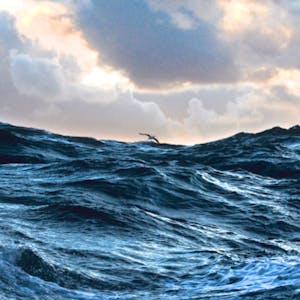The course "Oceanography: a key to better understand our world" offers an immersive exploration of oceanography, focusing on the Mediterranean Sea, Atlantic, Southern Indian and South Pacific Oceans. Through engaging modules, students will delve into the classification and formation of the ocean floor, satellite ocean analysis, ocean chemistry, and the historical evolution of ocean basins.
Unique features of the course include:
This course is designed to be accessible to all, requiring no prior knowledge of oceanography.
Certificate Available ✔
Get Started / More Info
Embark on a comprehensive journey through the science of oceanography. Explore the Mediterranean as a model for ocean study, delve into global ocean dynamics, satellite oceanography, ocean chemistry, and the historical evolution of ocean basins.
The module "The Mediterranean: a model of an ocean - Temperature, salinity, and pressure" offers a detailed exploration of the unique characteristics of the Mediterranean as a model for oceanographic study. Students will gain insights into the temperature, salinity, and pressure dynamics of this region, providing a foundational understanding of oceanography. The module also includes a comprehensive quiz to reinforce learning.
Delve into the complexities of water masses and circulation in the Mediterranean with the "The Mediterranean: a model of an ocean - Water masses and circulation" module. Gain an understanding of fundamental marine dynamics, including pressure gradient force and the Coriolis force, which shape the circulation patterns in this region. The module is supplemented with a quiz to assess knowledge retention.
Explore the "Global Ocean" module, which provides a comprehensive overview of ocean dynamics on a global scale. From understanding the water cycle on the planet to the impact of climate on ocean heat distribution, this module delves into the intricate dynamics of the world's oceans. Students will gain insights into the diverse ecosystems and oceanic environments, enriched with a challenging quiz to reinforce learning.
The "Satellite oceanography: all eyes on the planet (I)" module offers an in-depth exploration of remote sensing and its application in oceanography. Students will gain an understanding of how satellite observations are utilized to study the ocean's surface, including the measurement of sea surface temperature and ocean color. The module also features a comprehensive quiz to assess understanding.
Continue the exploration of satellite oceanography with "Satellite oceanography: All eyes on the planet (II)." Gain insights into microwave radiometry, scatterometer wind vector retrieval, and radar altimetry, which revolutionize operational oceanography. The module concludes with an overview of satellite applications in oceanography and a summary of key concepts.
Dive into the complexities of ocean chemistry with the "Ocean chemistry: a chemical industry with wall-less pipes" module. Explore the intricate chemical composition of seawater, the carbon carbonate system, and the global ocean conveyor belt. This module offers a comprehensive understanding of the chemical dynamics within the ocean, complemented by an engaging quiz.
The "Ocean basins: a memory sustained for millions of years" module takes students on a journey through the historical evolution of ocean basins. Gain insights into paleoceanography, marine sediment distribution, and the typologies of marine biogenous and hydrogenous sediment. The module concludes with an exploration of significant points along the course and their oceanic and structural significance.
This course introduces learners to careers in sustainability, with a primary focus on the role of a sustainability analyst. Through interactive content and practical...
Global Warming II: Create Your Own Models in Python offers a hands-on approach to understanding climate science through Python programming exercises.
Systèmes d’Information Géographique - Partie 2 offers advanced spatial analysis techniques using free software like QGIS, enabling learners to understand and...
Climate Change: Carbon Capture and Storage course provides an in-depth understanding of CCS technology, its role in reducing carbon emissions, and its impact on...